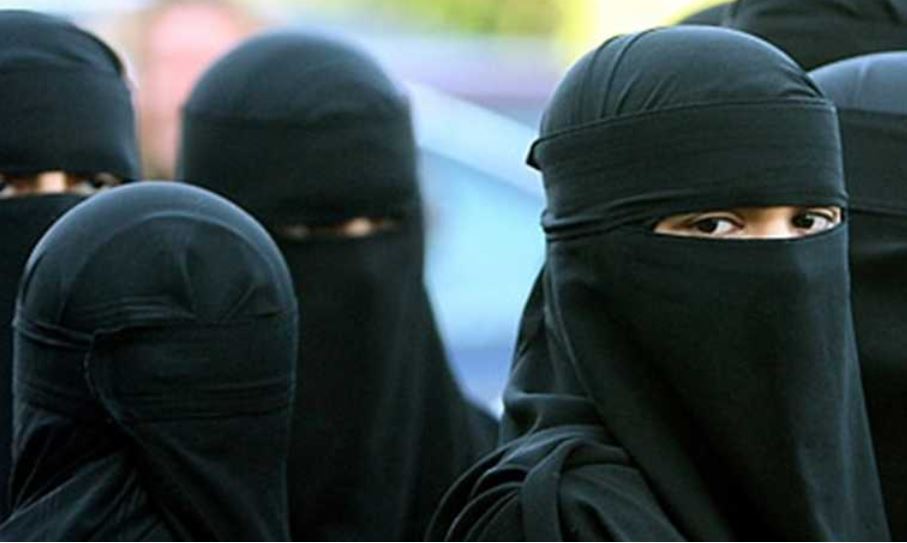By: V4 Agency
Forced marriage, genital mutilation, or dousing with acid are all culturally ingrained elements that have morphed and developed in a distorted way over time, as anthropologist Simone Borile explains.
Forced marriage, the mandatory Muslim dresscode, genital mutilation and pouring acid on someone are all crimes related to the Islamic religion, mostly committed against women, Italian anthropologist and criminologist Simone Borile told the il Giornale newspaper.
The anthropologist emphasized that “these types of violent and illegal acts stem from a cultural, rather than a religious basis. These practices are so deeply ingrained that they have adapted and developed over time within the culture in a distorted way.”
Pakistani Prime Minister Imran Khan stated in March last year that the increase in sexual harassment was due to a “women’s turn toward libertinism and obscenity,” recalls il Giornale.
Mr Khan urged his compatriots to take up the veil. “If our religion prescribes the wearing of the hijab, there must be reason for it, namely the protection of the family and society. But not everyone has the willpower to resist temptation,” he said.
According to Simone Borile, “the social and legal standing of women is also in jeapardy due to the patriarchal cultural context. Wearing the hijab is a tribute to the Prophet Muhammad. If a women does not bear it and refuses to adhere to the precepts, men have the right to correct those who have gone astray.”
The other big problem is the institution of forced marriage, punishable in Italy by one to five years in jail. According to the interior ministry, authorities initiated 32 legal proceedings for allegations of coercion or incitement to marry between 2010 and 2020, but only 3 of these cases reached the stage of having a court hearing. Forced marriage is a global phenomenon, which often also affects children. According to the UN, the year 2020 saw 33,000 child marriages each day, leaving 650 million women and children into forced marriages or families.

“Unfortunately, this is a very common phenomenon, it is inconceivable for a woman in such a situation to refuse the will of her family, because in these cultures they have no say in the decision-making. Being married off at such a young age has serious consequences, such as dropping out of school, multiple and early pregnancies, as well as domestic violence. The girl’s refusal of the chosen man might entail dramatic consequences, including her stoning.”
In 2020, some 4.1 million women and girls lived under the threat of female genital mutilation, a UNFPA report dealing with human rights violations and harmful practices around the world reveals.

Roughly 200 million women are reported to have had their genitals mutilated. “This is a ritual that involves the complete or partial removal of the female genitalia. In some cultures, it is mandatory for young girls to endure the procedure, because there’s a widespread belief that women’s bodies are imperfect and that the procedure is a step towards perfection. Furthermore, some cultures have the idea that if a child is born by touching the clitoris, she should be immediately sentenced to death by beheading.

Female genital mutilation can lead to severe health problems, and a painful sexual intercourse is only one of them. Infections, cysts, and infertility can develop, in addition to an increased risk of HIV infection and complications during childbirth.
One of the acts of violence associated with Islamic culture, committed mainly against women, is vitriolic attacks. The ancient practice prevalent in the Muslim regions of the Middle East irreversibly disfigures the face and body of the victim.

According to statistics published by the Acid Survivor Foundation (ASF), 1485 women were attacked in Pakistan with caustic substances between 2007 and 2018. Since 2011, similar crimes have been punishable by 14 to 30 years in prison and a fine of 1 million rupees (11 thousand euros) in the country.
“The irreparable damage to women’s faces and bodies, which causes lifelong suffering, clearly shows that a fundamental tenet of Muslim culture is that women are worthless and the suffering caused to them is justified and legitimate,” the anthropologist said.

The oftentimes intolerable pain drives a lot of women into suicide. Fakhra Younas, a Pakistani dancer who lived in Rome, killed herself in March 2012 after her husband poured acid on her in 2002. “The scars of a woman who was poured with acid are permanent and indelible stains of shame, which will forever threaten her social existence,” the anthropologist said.

